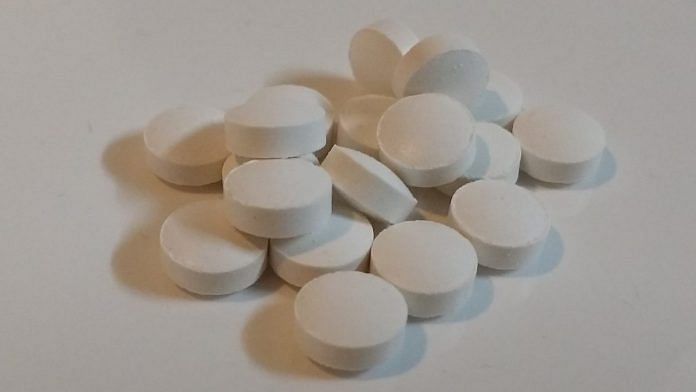India gets surplus sun, yet a large percentage of Indians suffer from significant vitamin D deficiency. And this number is only growing – it’s a public health problem of epidemic proportions. What could be the possible reasons? Dietary insufficiency is an evident cause, and nutrition policymakers are looking into food fortification as a major intervention to combat this public health problem. However, scientists believe that a combination of factors is defining India’s vitamin D deficiency, including increased indoor time, pollution, consumption of ultra-processed foods, darker skin tone, etc.
Vitamin D, aka the sunshine vitamin, is a crucial fat-soluble vitamin required for optimum growth, development, metabolic functions, immune system, bone health and mental health. Studies have demonstrated that vitamin D level has a major say in depression, mood swings, anxiety, and sleep quality. But we are getting less vitamin D than we should.
Indians are vitamin D deficient
Vitamin D deficiency is a public health problem.
Most experts define vitamin D deficiency as serum 25-hydroxyvitamin D [25(OH)D] level below 30 ng/ml. Severe vitamin D deficiency, or a cutoff value of 25(OH)D <12/10 ng/ml, significantly increases the risk of osteomalacia or nutritional rickets. A recent article in Nature reported <12 ng/ml 25(OH)D levels in more than 20 per cent of the population in India, Tunisia, Pakistan, and Afghanistan, with an estimated 490 million individuals suffering from vitamin D deficiency in India. Nearly 76 per cent of Indians suffer from Vitamin D deficiency and insufficiency, according to a study published in May 2020 that included 4,624 subjects at 229 sites across 81 cities in India. The prevalence was most common among adults aged 18-30 years.
This growing prevalence of vitamin D deficiency worldwide might be a combined outcome of dietary inadequacy and less exposure to sun, which worsened during the Covid-induced lockdowns.
Also read: Can lab-grown shiitake fight Vitamin D deficiency? Indian scientists plan human trials to find out
Deficiency linked to depression and lack of sleep
The role of vitamin D in maintaining sound mental health is a comparatively new area of research. According to Lauren Harms and colleagues, the presence of multiple vitamin D receptors and metabolites in the brain shows its possible association with brain development and onset of numerous neurological and neuropsychiatric disorders. A 2020 comprehensive review included numerous studies that collectively concluded that clinical depression is associated with vitamin D deficiency. With 31,424 participants, a meta-analysis from Korea reported those who were suffering from depression had low vitamin D levels. A similar study by the researchers of McMaster University, Canada with 43,137 participants reported a comparable outcome. Back in 2010, a group of researchers called for more scientific studies to identify vitamin D deficiency early and treat it with supplements, calling it an ‘easy and cost-effective’ solution for people living with depression or other mental health disorders. What’s more, a meta-analysis of multiple randomised control trials (RCTs) found that moderate supplementation of vitamin D could lessen the symptoms of depression.
Vitamin D deficiency affects mood and sleep because it plays a crucial role in regulation of melatonin and serotonin, two hormones responsible for mood and sleep regulation. In two consecutive studies in 2014 and 2015, Patrick and Ames explained the physiological mechanism underlying the effect of vitamin D insufficiency on mood, cognitive function and behaviour. A model proposed by the authors suggested that a combination of genetic predisposition, omega 3 deficiency and vitamin D insufficiency may lead to reduced production of serotonin, also known as the ‘happy hormone’. A low level of serotonin is linked to several mental health conditions. The study concluded that an optimum intake of vitamin D and omega 3 is crucial to prevent these disorders.
Vitamin D significantly influences gut microbiota function and health by supporting growth of beneficial gut bacteria and protecting the integrity of gut lining. Given the fact that the gut has a complex and close connection in promoting mental wellbeing, keeping it healthy is crucial.
Also read: Do Vitamin C and herbal remedies help with cold? Experts explain
In sun and food
A comprehensive intervention is the need of the hour. For most adults, the recommended dietary allowance (RDA) of vitamin D is 600 IU. Senior adults aged 70 years and above require 800 IU vitamin D. Unfortunately, RDA of vitamin D can’t be fulfilled by diet alone. Additionally, 70-90 per cent people are now spending most of their time indoors. A comprehensive strategy to combat vitamin D deficiency includes exposure to the sun, modification of diet, supplementation when needed, managing obesity and special attention to darker-skin population. Melanin, a skin pigment, is responsible for reduced vitamin D production, thus people with darker skin or more melanin require more exposure to sunlight than people with lighter skin tone. The amount of exposure however depends on climate, season, and whether you are applying sunscreen or not. Mid-summer days are the best time to obtain maximum vitamin D.
Not many foods provide vitamin D. Some rich sources include fatty fish, cod liver oil, animal fats such as lard or tallow, vitamin D fortified foods such as orange juice, milk, and cereals. It’s important to manage vitamin D deficiency and insufficiency with supplements whenever needed under the supervision of a physician.
Obesity and serum vitamin D levels are also connected. If your BMI is 30 kg/m2 or higher, work with a nutritionist to chalk out a reasonable weight loss plan that will also address vitamin D deficiency, if any.
Dr Subhasree Ray is Doctoral Scholar (Ketogenic Diet), certified diabetes educator, and a clinical and public health nutritionist. She tweets @DrSubhasree. Views are personal.



